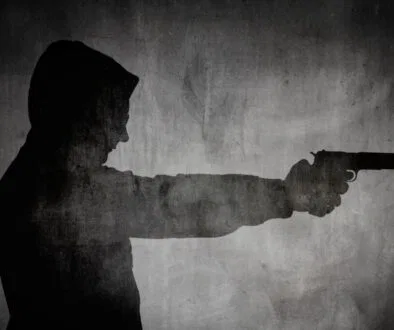Probation vs. Parole: What’s The Difference?

Published Dec 6, 2021
For many people, probation and parole may mean the same. After all, both of them allow an offender to serve their sentence outside of prison.
But while parole and probation are designed to rehabilitate offenders and reduce recidivism, they are two very different legal punishments.
Probation Vs. Parole
The main difference between probation and parole is the manner in which they are granted. Probation is granted in lieu of a prison sentence. Instead of spending time in prison, the offender will serve their sentence outside but under probationary conditions. Parole, on the other hand, is granted to people who have already served prison time as a reward for good behavior.
In short, people under probation usually don’t spend time in prison. While those who receive parole have already been in prison but are allowed to serve the remainder of their sentence outside.
If the above seems confusing, here’s a breakdown of the differences between the two:
Purpose
As mentioned, both parole and probation are designed to curb recidivism. But they are granted for different purposes.
Parole is granted as a reward for good behavior. When an inmate who has been sentenced to prison “behaves” while inside, they may be eligible for parole. This helps them better prepare for their eventual release and reintegration back into society.
Meanwhile, probation is granted as an alternative for prison sentence. As you know, the US has a problem with mass incarceration and keeping people behind bars cost money. To save up on incarceration costs, the court will sometimes allow a convicted offender to spend their sentence outside of prison.
Besides, probation is usually given only to non-violent offenders. That’s because detaining them with hardened criminals may only develop or worsen their violent tendencies.
(Related: Can a Capias Warrant Send You to Jail?)

Eligibility
Just like their purpose, parole and probation have different eligibility requirements too.
Aside from good behavior, someone’s eligibility for parole is determined during their sentencing. In most cases, the court will specify a minimum amount of time for the offender to serve before they can apply for parole.
If no such time limit is mentioned, the offender will only be eligible for parole after serving at least one-third of their term. Or if the offender is serving more than 30 years to life, they may only apply for parole after serving at least 10 years.
In some states, the eligibility for parole may also be affected by factors like:
- the type of offense
- previous criminal records (if any)
- the length of time between offenses
Meanwhile, all offenders are eligible for probation except if:
- the offense is a class A or B felony and the defendant is an individual
- the offense is an offense for which probation is previously precluded
- the defendant is sentenced at the same time to a term of imprisonment for the same or a different offense that is not a petty crime
An offender with class A or B felony charge may also be eligible for probation if they provide substantial assistance to the authorities.
Conditions
Both parole and probation involve certain conditions that the offender must follow. These conditions are usually set by the judge or the parole officer. Violation of which can lead to imprisonment.
The law specifies both mandatory and discretionary conditions for probation. Mandatory ones include:
- the offender must not commit another federal, state, or local crime while under probation
- the offender must not illegally possess a controlled substance
- first time domestic violence offenders must attend a court-approved rehabilitation program
- the offender must refrain from illegal use of controlled substances
- the offender must submit to a drug test within days after being released on probation and at least 2 periodic drug tests thereafter
- checking in regularly with a probation officer
For parole, most states allow authorities significant discretion on what conditions to impose. But they must not unfairly restrict any fundamental rights. This is why parole conditions usually vary from state to state.
But in general, parole conditions include:
- reporting regularly to a supervising officer
- not leaving a defined area without permission
- refrain from possessing any guns or weapons
- not breaking the law
- maintain employment and a residence
- avoid contact with any victims
- refrain from drug or alcohol use
- attend drug or alcohol recovery meetings
Aside from the above, the court may also require offenders to wear ankle monitors to track their location and alcohol or drug consumption.
Fourth Amendment Rights
The protection from illegal searches provided by the Fourth Amendment does not include people under parole and probation. This means that authorities can search their homes even without a search warrant.
If illegal drugs or weapons are discovered during the search, they can used as evidence against the offender. In addition to the revocation of parole or probation, the offender may also face charges for drugs and possession of illegal weapons.
Is Parole More Strict Than Probation?
It really depends on the conditions imposed by the court. Remember that, in most cases, the parole and probation conditions are tailored to the risks posed by the offender.
If the parole officer sees that the parolee is trying their best to stay sober, has a regular job, and basically getting their life together, they may not be that strict. The same goes for those released on probation. If the probationer is staying away from crime and doesn’t do anything that might violate their probation, the probation officers are usually more lenient.
Advertisement
Save 90% Per Minute On Jail Calls With Us
US prisons charge lots of money per minute for long distance inmate calls. The loved ones of inmates are left to pay this bill. For a ten minute phone call you may find yourself paying over one hundred dollars. With SecurTel, you can reduce this charge to a fraction of the cost and only pay the local calling rate. Make calls from across the US or internationally for the local rate and help your family stay connected during a difficult time. Learn more about how to sign up for inmate calls here.

This Content Is Fact Checked
We have conducted thorough fact-checking on this content in-house. Get detailed insights into our website’s editorial standards by clicking here.

About The Author
Judy Ponio is the lead writer for the SecurTel blog. Her passion for true crime stories and criminal justice has fueled her work and inspired millions of readers around the world.



